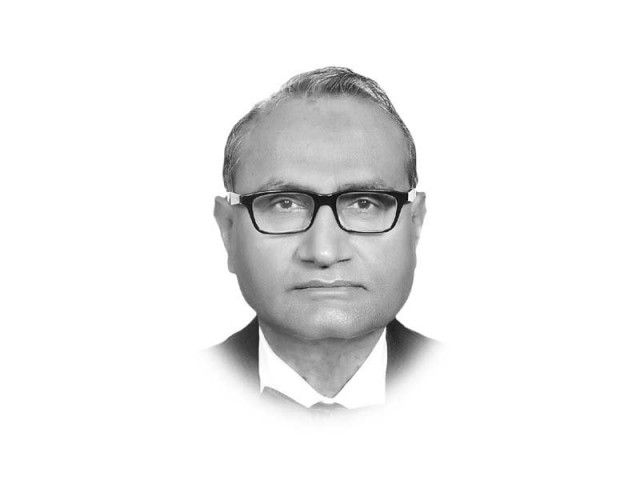The ‘best’ technocrat money could buy
The Paradise Papers have appeared at a time when rumour mills in Pakistan are operating at full capacity

pervez.tahir@tribune.com.pk
Back to office, he did three things. First, the deviant officer was not to be invited in future to such meetings. Second, all newspapers were to be supplied to his office every morning and a TV installed for quick updates. Third, a witch-doctor masquerading as economic adviser was called in to take care of the growth rate. Without any mandate, the witch-doctor (nowadays donning TV screens in favour of a technocratic set-up) rode roughshod over the statistics bureau. Thus started the never ending story of figure fudging, made to order data and tampering with the entire statistical system. Nothing was spared — national accounts, unemployment rate, poverty, prices, you name it. In his office, Aziz was never seen working or looking at any files. He was either surfing TV channels or going through newspapers looking for anti-stuff to be rebutted. To establish credibility, the previous government was reported to the IMF for massaging the fiscal deficit and a heavy fine was paid. It is another matter that the officers involved in the ‘cooking’ and reporting were the same, including the irreparable witch-doctor. Nothing changed even when he was catapulted into premiership. He held on to the finance ministry, knowing that politics is too serious a business to be left to a technocratic prime minister. Small wonder, he was preferred to a pliable Jamali, a friendly Chaudhry and others dry-cleaned by the National Accountability Bureau.
There are many feathers in his cap, but forcing poverty to come down statistically stands out. It started with the delay in the release of the Household Integrated Economic Survey 2000-01. Estimates of poverty in this bad economic year would have certainly been higher than the previous estimate. The 2000-01 poverty ratio was not allowed to be estimated and announced before 2003. An increase of 1.53 percentage points angered the finance minister. A statistically inappropriate recall survey was ordered, but to no effect. However, the technocratic boys were well prepared for 2004-05. The finance minister was also the prime minister now. Improved governance was ordered at the statistics bureau to nip the evil in the bud. The data was not given to the estimators until the statistical saboteurs were satisfied that the expenditure tables suited their targeted outcome. Poverty would have declined anyway, as the comparison was between the isolationist low growth year of 2000-01 and 2004-05 when the fruits of being a non-NATO ally of the US were being reaped. The results showed an incredibly high annual reduction of one percentage point. Not high enough, though, for the technocrats. Poverty line itself was changed, doubling the rate of poverty reduction. Those protesting the dishonesty were shown the door.
Published in The Express Tribune, November 10th, 2017.
Like Opinion & Editorial on Facebook, follow @ETOpEd on Twitter to receive all updates on all our daily pieces.















COMMENTS
Comments are moderated and generally will be posted if they are on-topic and not abusive.
For more information, please see our Comments FAQ